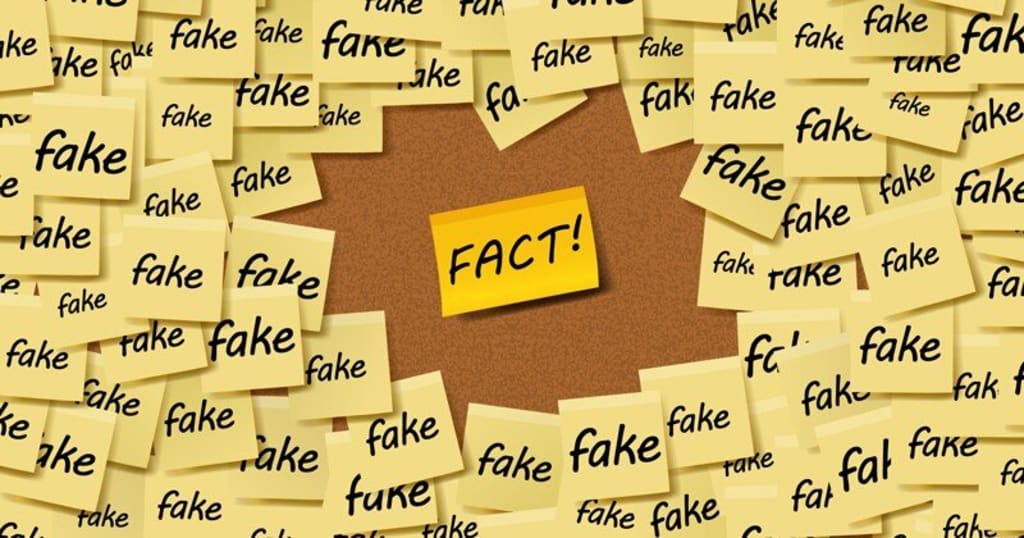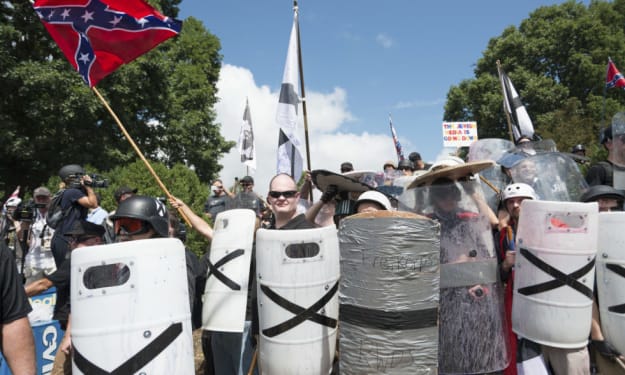The Dangers of Conspiracy Theories
Its History and Current Events

I firmly believe that conspiracy theories have been around since the dawn of time. Since humans were capable of thinking of ways to get the upper hand against their most challenging and ominous opponents in politics, military, domestics, and social standing, conspiracy theories led the charge to discredit, weaken, neutralize or even kill its victims in the end. Call it survival, intense competition, malice, psychological disruption or just plain evil. It doesn't matter how you look at it. Conspiracy theories are there to bring people down. That's its sole purpose and nowadays you see it occur again and again in a frightening and mind-boggling pace.
History is a treasure trove of such events many people can look back to in order to see how it influenced populations and regions within specific timelines of our past. I believe on of the most notorious and deadliest conspiracy theories to ever come out was anti-Semitism. As many people already know, as a means to rise to power, Adolf Hitler accused the Jewish communities of the world of hoarding, manipulating and controlling massive fortunes of monetary wealth at financial institutions and banks so they could undermine everyone else and bring them to their knees. He claimed since the Jewish population are heavily present in many high-profile professional jobs such as bankers, lenders, lawyers, doctors, business owners, politicians, tax collectors, and merchants, they could easily gain access to insurmountable wealth and keep a good portion for themselves. The fact that people that had debts with this group didn't make them popular at all, which spread the belief in more that they were wicked and out to harm. This outlandish belief corrupted tens of millions of people in Europe which eventually led to the holocaust. This conspiracy theory gained traction due to wide belief among Christians that Judas betrayed Jesus Christ (deicide) and handed him to the Romans to be crucified. Even today, many Christians from many denominations fervently believe that people of the Jewish faith can't be trusted at all.
Religion has played a significant role in spreading conspiracy theories about people who weren't entirely considered true followers of a particular faith. Throughout the middle ages, Jewish citizens were housed in ghettos and were even exiled. Catholic zealots raided their homes, had their cash and property seized, their religious books removed, were forced to pay extra taxes, and were shunned from almost everything. In fact, the Middle Ages provides us with documented evidence of Jewish persecution and death and one of the reasons for it was blood libel. The story of William of Norwich in England is a notable one, in which Jews were blamed for ritually killing the boy and crucifying him in 1144. The story of Late Saint Hugh of Lincoln in 1255 states that the boy's belly was cut open so his entrails were removed to perform a divination ritual. I, personally, have no clue what happened to him and how he met his end. What I do believe is that the story of him being killed by Jewish civilians in an occult fashion is false.
During the reign of King Edward Longshanks in the late 13th Century, the Jewish population faced extreme hostility and hardship. To pay for his conquest in Wales, Edward taxed Jewish moneylenders. When they couldn't pay anymore, they were accused of disloyalty. They were already restricted from many daily activities such as trading and other privileges, but Edward decided to go a step further and choke their opportunities in movements and other benefits. This also happened in other parts of Europe. The King even forced them to wear a yellow patch which was, again, common in many European kingdoms. Many of them were rounded up, arrested and locked up in the Tower of London where many of them were executed or killed in their homes. The policy was finally reversed by Oliver Cromwell in 1655.
Expelling Jewish inhabitants followed by property confiscation and ransom was a common practice and saw its use in many powerful kingdoms. In France, for instance, it was done to enrich the French crown and it happened many times. From Paris by Philippe Augustus in 1182, from the entirety of France by Louis IX in 1254, Philipp IV in 1306, by Charles IV by 1322 and by Charles VI in 1394. In the Holy Roman Empire, the Emperor couldn't exert much influence on principalities due to local councils and courts as they chose to expel Jewish citizens from their towns and cities. The Rhineland Massacres in 1096 occurred during the First Crusade as the army headed to Jerusalem. On their way, After the death of Emperor Maximilian I in 1519, the city of Regensburg expelled 500 Jewish people.
Many European statesmen, members of the nobility and influential clergymen often condemned Jewish citizens of allegedly poisoning wells during the bubonic plague that occurred in the mid-14th century. As a result, many Jewish people were burned at the stake. Many of them were executed even before the black death made it to Europe. This happened in Toulon, Strasbourg, Frankfurt, Mainz and Nuremberg.
As time went on, many people of the Jewish faith continued to be subjected to anti-Semitism. Another powerful scandal occurred in 1894 with the Dreyfus Affair, in which French military officer Alfred Dreyfus, who was Jewish and hailed from Alsace, was accused of selling military secrets to the Germans. He was stripped of his military status and court-martialed. He spent five years at a prison in French Guyana when Émile Zola penned his famous writing J'Accuse...! accusing the French government and military of anti-Semitism. Due to mounting public pressure, the case was reopened and Ferdinand Walsin Esterhazy was discovered to be the culprit. The scandal rocked the French republic and caused a serious identity crisis. I also believe the poor performance of the French military during the First World War can be attributed to this scandal.
Today, conspiracy theories have seen an enormous resurgence, especially in the United States. In far-right conservative news outlets, internet podcasts and radio talk shows such as InfoWars, Breitbart and others, conspiracy theories have seen a new light. For example, many right-wing extremists and their followers believe that the Sandy Hook Elementary School shooting was a hoax and that the children and their parents are paid actors. President Donald Trump is known for spreading the Birther conspiracy theory claiming that Obama isn't an American citizen and, therefore, was born outside the country. Most recently the infamous far-right group QAnon has been spreading an outrageous and revolting conspiracy theory that alleges that Democrats and other high-ranking officials are participating as cabal Satan-worshipping pedophiles against children. Trump has even refused to condemn this group which reinforces the truth that this man intends to cause extreme damage to innocent citizens in the United States. This case reminds me of Pizzagate, in which proponents of this ridiculous myth claim that the Democrats were working closely together with a chain of restaurants in a human-trafficking and child sex ring. One of these restaurants was the Comet Ping Pong pizzeria in Washington D.C. An armed man entered the establishment so he could, "see for himself". This highlights the dangers of conspiracy theories and why they should be ignored.
As mentioned earlier, conspiracy theories cause intense hostility, violence, damage and death to innocent people. Way too many people have suffered greatly under this suffocating and scathing virus. We must lead by example and follow the lessons of history to prevent more conspiracy theories from surfacing. When we do, our countries and communities will be safer and more secure for everyone.
About the Creator
Kevin Tennert
I think expressing yourself in fundamental and categorical topics help create a more transparent, concise, and educational environment. For me, I like to explain key issues that dominate current events in society and encourage dialogue.






Comments
There are no comments for this story
Be the first to respond and start the conversation.